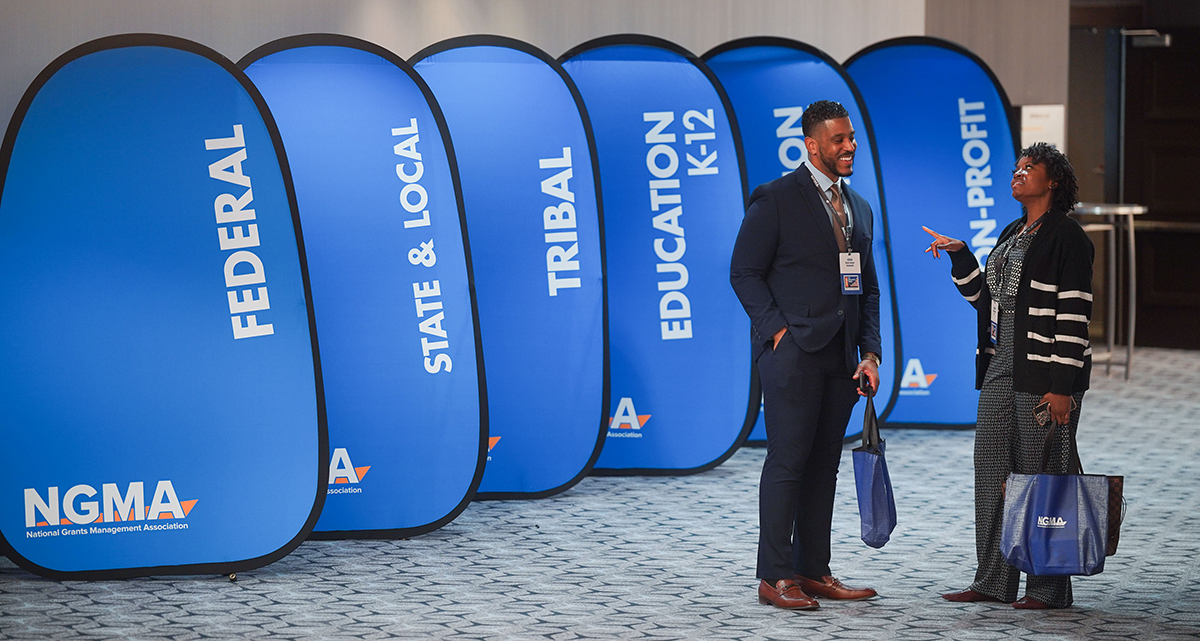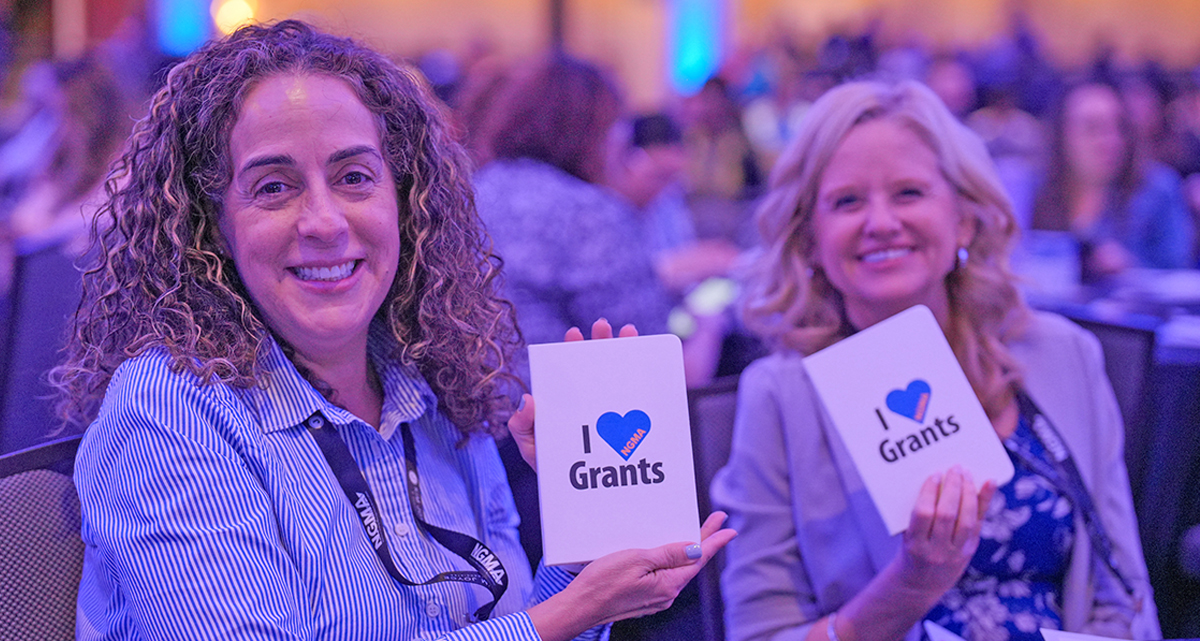|
|
Grants Management is the comprehensive process of overseeing all activities related to a grant.* The process includes managing the major steps of a grant lifecycle: Pre-Award | Award | Post-Award. |
|
Grants managers adhere to the Uniform Administrative Requirements, Cost Principles, and Audit Requirements for Federal Awards, commonly known as the Uniform Guidance, codified at 2 CFR 200. The Uniform Guidance is a government-wide framework for grants management directed by the White House Office of Management and Budget (OMB).
Grants managers also comply with federal, state and local laws and regulations in addition to the Uniform Guidance.
* What is a grant? Funding received by organizations that is not expected to be repaid, often distributed by a government organization, that provides support or stimulation to accomplish a public purpose.
_______________________________________________________________________
 RESPONSIBILITIES OF A GRANTS MANAGER
RESPONSIBILITIES OF A GRANTS MANAGER
The responsibilities of grants management are summarized in these key steps.
| 1. |
Grant Writing and Application Submission. Traditionally considered pre-award activity, the work performed in this step occurs prior to an award being made. Activities performed in this step include identifying funding opportunities that align with an organization's mission and goals. Grant writers draft proposals to outline a project's objectives, budget and potential outcomes with the goal of receiving a grant award. Grant applications require thorough research, a deep understanding of the grantor's requirements and clear communication. It is important to note that the tasks and end goals of grant writing are different from grants management. Grant writing pertains to the necessary steps to secure grant funding. Grants management occurs after the award has been made and includes the processes of overseeing the projects and activities that must be executed to meet the grant funding goals. The person who manages the grant should not be the same person who wrote it, and vice versa. Grants management activities are addressed in numbers 2-5 below. |
| 2. | Grant Awarding and Agreement. When a grant application is approved, the funding organization (grantor) issues an award to the recipient (grantee). The grant agreement specifies the terms and conditions for utilizing the funds, such as reporting obligations, project timelines and deliverables. It is critical for grants managers to understand all the requirements of a grant award to ensure compliance throughout the grant's duration. | ||
| 3. | Grant Administration and Compliance. During this period, grants managers must establish a robust administrative system to support the effective implementation of funded projects. The system includes financial management, cost and expenditure monitoring and allocation, progress reporting, procurement and adherence to grantor guidelines. Additionally, compliance with relevant organization policy, as well as federal, state and local laws, regulations and accounting standards is necessary to maintain transparency and accountability. | ||
| 4. | Monitoring and Evaluation. Regular monitoring enables organizations to assess the progress of the funded projects against predetermined targets. Grants managers evaluate whether the project is achieving its objectives, utilize funds efficiently and make necessary adjustments if challenges arise. Accurate and timely reporting is crucial to the grantors and the grantee organization to measure the impact of the grant and ensure accountability. | ||
| 5. | Grant Closeouts, Audits and Ongoing Relationship. Once a grant period ends, a grants manager must ensure a proper closeout procedure is in place. This involves final reporting, conducting audits, financial reconciliation and providing any required documentation to the grantor. |
It is essential for grants managers to build strong relationships with grantors, maintain open communication and fulfill reporting obligations. Maintaining these positive relationships helps ensure a successful project trajectory and is beneficial for securing future funding opportunities.
_______________________________________________________________________
 WHO IS A GRANTS MANAGER?
WHO IS A GRANTS MANAGER?
|
A grants manager is anyone involved in the management and administration of a grant. Someorganizations have one or more employees fully dedicated to grants management, while smaller organizations may designate the responsibilities of grants management to a staff member. In many instances, grants management professionals may have job titles that do not directly reference grants or any part of the grants management process. But whether an employee plays one role, a limited set of roles or every role, they are involved in grants management. |
|
Grants managers work in the following sectors:
- Federal | State | Local | Tribal Governments
- Nonprofit Organizations (i.e., Healthcare)
- Educational Organizations (K-12, Institutions of Higher Education)
- Consulting | Private Industry
Each sector, as well as each individual organization, has unique and specific rules and regulations they must adhere to in grants management. The grants manager needs to know which set of rules should be followed, as oftentimes they differ. This is in addition to the Uniform Guidance and other additional requirements. Compliance education and training is an ongoing and crucial part of successful grants management.
_______________________________________________________________________
 EDUCATION BACKGROUND & SKILLSETS
EDUCATION BACKGROUND & SKILLSETS
EDUCATION
Currently, there are no college degrees directly related to grants management. If you excel in a specific area of grants management or are interested in working in a specific sector, obtaining a related degree or certification(s) can be beneficial to your grants management career.
Examples:
- Certified Grants Management Specialist (CGMS) designation*
- Accounting
- Business Management
- Education
- Finance
- Healthcare
- Project Management
- Subject matter expertise related to your grant(s)
*NGMA administers the CGMS program. Earning the CGMS credential demonstrates professional competency in every step of a grant lifecycle. Learn more

SKILLSETS
Grants projects potentially impact entire organizations or communities. The responsibilities of a grants manager include managing significant amounts of funding; managing complex projects; complying with multiple rules and regulations and juggling requests, deadlines, meetings and general expectations. They must be able to shoulder a large amount of responsibility, be flexible, be willing to continuously learn and adjust as needed and be prepared to handle the unexpected.
Sought-after skillsets in grants management roles include:- Strategic Thinking
- Analytical Skills
- Project Management
- Organizational Skills (time and task management)
- Communication Skills (verbal and written)
- Financial Management and Budgeting Knowledge
- Productivity Software Knowledge (Excel, PeopleSoft, etc.)
Interested in a grants management job?
Visit the NGMA Job Board to browse open grants management-related positions around the U.S.

 What is Grants Management?
What is Grants Management?
 GRANTS MANAGEMENT DEFINED
GRANTS MANAGEMENT DEFINED


